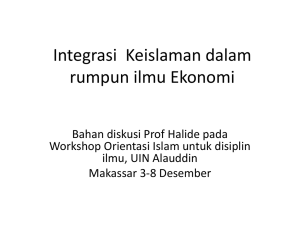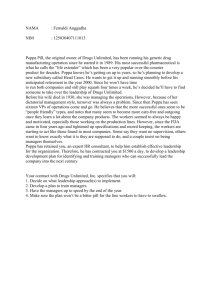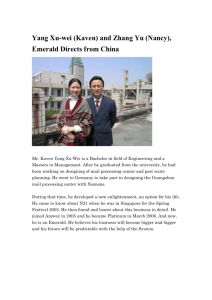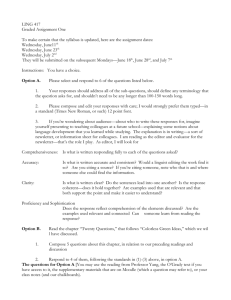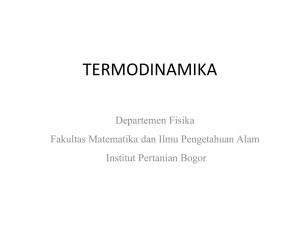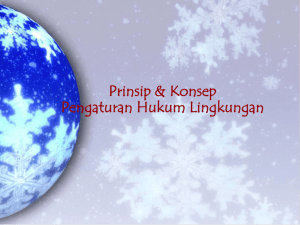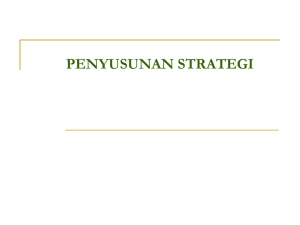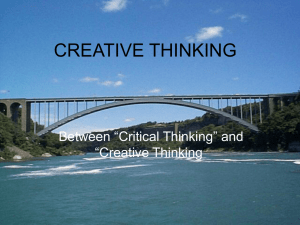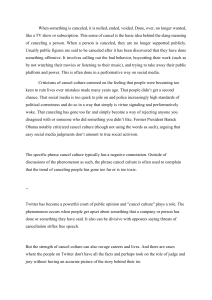THE PROBLEM OF TRANSLATING INDONESIAN
advertisement
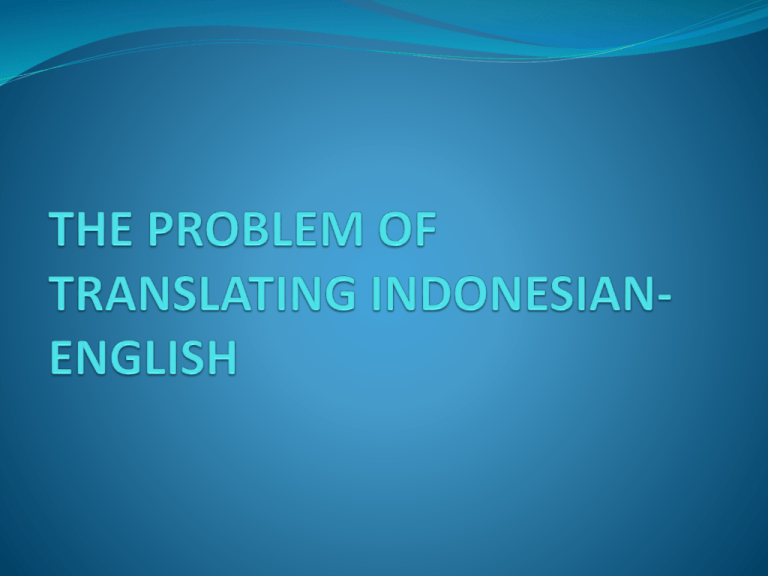
Translation is a challenging job Translation is not an easy work. It needs a serious attention and concentration. It can be said that the core of translation is a transfer of message. The translator should be careful in replacing the meaning from Source Language (SL) to Target Language (TL). The translator must also keep the excess and mission in the Source Language then transfer them to target one. If the translator can translate well semantically but can not move the closest mission, the result of translation is unsatisfied. Therefore, to solve this problem the translator should master not only linguistics and the materials that will be translated but also the theory of translation. The Problem of Translating Indonesian-english In general, Indonesian or Bahasa is used freely by its users both in oral and written form. This means that the use of the language is in practice deviates or misleads from what is prescribed by the Tatabahasa Indonesia Baku. This violation is also occurs in written form, where the language used must actually be formal. This deviation applies in a word choice, word collocation, sentence pattern and discourse pattern. Even if the use follows the rules, there are still other problems, one of which is ambiguity as asserted by Gunawan (2001). An instance: What’s the best translation for this sentence? Anak perempuan presiden yang kaya itu” When this translated in English, it can be either, 1. The rich daughter of the president or 2. the daughter of rich president. Which one is the rich? The president or the daughter of president? This case is the same as “Istri tentara yang genit itu” Which one is “genit/coquette/firtatious”? Other confusion Commonly, most of the students translate even when they speak and write. This means that they write in Indonesia first what they want to say in English. Then they translate it. This of course produces problems in their translation as their Indonesian is itself still bad. An example “Diantara keluarga hukum, paramedis, atau masyarakat dan korban dapat membuat kerjasama satu sama lain” Keluarga hukum, paramedis”? One can easily see how badly the sentence is constructed in Indonesian in the first place, this resulting in the translation being also wrong. No coherence and cohesion Anak yang putus sekolah adalah anak-anak yang kehilangan hak pendidikannya dan tidak memiliki kesempatan untuk mengembangkan dirinya secara maksimal. Kondisi seperti ini adalah kondisi yang sangat menyedihkan. Dampak lain masa depan anak tidak menentu serta menjadi “unskill worker” sehingga mereka akan menjadi beban negara di masa datang. (missing transitional markers, inappropriate use of the word “lain”) Tiga setengah abad lamanya terjajah oleh Belanda telah mempengaruhi pola pikir dan karakter bangsa ini. Belanda telah banyak memberi warisan bagi bangsa ini. Jika warisan itu sesuatu yang positif seperti rasa tanggungjawab, fokus dan disiplin yang tinggi hal ini tidak apa-apa bahkan perlu dimaksimalkan. Sayangnya, ada satu warisan yang sekarang tidak lagi relevan tapi masih saja digunakan. Three and a half centuries colonized by the Dutch has influenced the mindset and character of this nation. The Netherlands (the Dutch) has a lot to give a legacy (heritage(+)) for the nation. If it's something positive (positive thing) legacy (heritage,inheritance(-)?) as a sense of responsibility, focus and discipline it does nothing (it doesn’t matter) even (more it) needs to be maximized. Unfortunately, there is a legacy (heritage) that is now no longer relevant, but (is) still used. Salah satunya ialah mindset bahwa bersekolah dan menuntut ilmu bertujuan akhir agar menjadi pegawai pemerintah. One of them is the mindset that ( going to school and studying) school and study aims to end in order to (be) become civil servants (government employee/governnment official). Di zaman dulu, Belanda memberikan pendidikan kepada pribumi agar bisa dijadikan tenaga terampil dan berkualitas tapi murah. Digaji sedikit pun mau dan ada kebanggaan berlebih sebagai “Amtenaar” atau pegawai negeri . Jika sudah jadi Amtenaar-nya kompeni, si pribumi merasa bangga , pribumi lain dianggap lebih rendah darinya. In ancient times, the Netherlands (Dutch) provide education to the natives in order to become skilled and qualified but cheap (a cheap but qualified and skills officer. Paid and there is not any excessive pride as "Amtenaar" or civil servants. If it was so Amtenaar Company, the natives take pride(feel proud) , (he considered the others are compared to him )others considered inferior natives of it. Itulah mengapa banyak kaum intelektual yang gengsi untuk memulai dari bawah. Mereka lebih bangga menjadi karyawan kantoran dengan gaji dua sampai tiga juta perbulan dibanding jadi (so) tukang (builders) nasi goreng dengan laba empat ratus ribu perhari. That is why many intellectuals (feel shy/embarassed) are proud to start at the bottom (from the beginning). They are more proud (feel prouder )to be employee in an office with a (monthly) salary of two to three million per month compared with the fried rice so builders (a fried rice street vendor/seller) (with a ) profit of four hundred thousand per day. . Selain itu, mereka juga merasa tidak bisa berkontribusi tanpa jabatan. Padahal sesungguhnya, banyak kontributor besar di bangsa ini yang tak punya jabatan struktural. Karena jabatan itu sementara, tapi kontribusi dan kapasitas bersifat kekal- dikenang sepanjang masa. In addition, they also felt (that) they could not contribute without a job (job position). When in fact, a lot of big contributors in this nation who have no structural position. Because (since a job position is temporary) it is a temporary position, but the contribution and capacity ( are eternal-it will be memorized all time) to be remembered for all time eternal.

